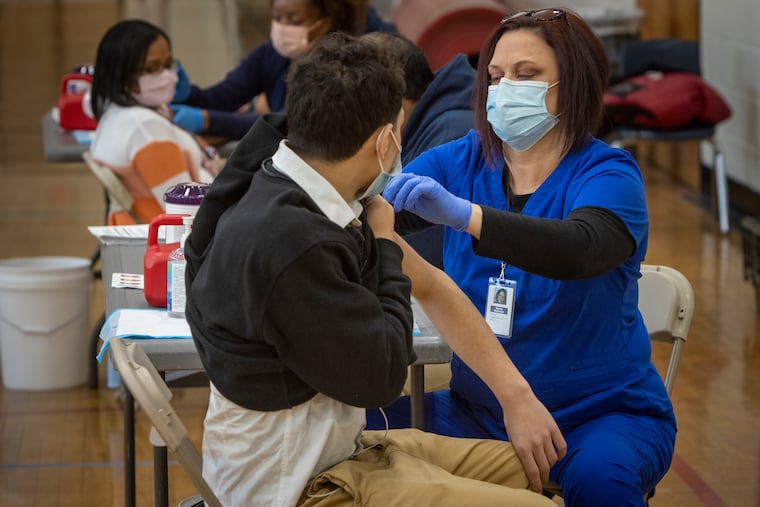What to know about deltacron, the latest COVID-19 variant
What you need to know about the latest COVID-19 variant, deltacron.

Just as life seemed to be on its way back to normal, with COVID-19 cases decreasing, researchers say they have identified a new variant of the virus.
A combination of the delta and omicron variants, deltacron, as it’s being called, has been reported in Europe and the United States, though researchers are still learning about it.
So what now?
Here’s what to know about the latest variant:
What is deltacron?
Deltacron is a recombinant virus, a virus mutation created when DNA from two strains combine. In this case, deltacron has genetic material from the delta and omicron variants. It was first identified in France in January and has since been reported in a handful of cases in Europe and the United States, according to the World Health Organization.
Have any deltacron cases been reported in the Philadelphia area?
Not that we’re aware of. Two cases have been reported in the U.S. — both in California. Almost all cases in the U.S. are attributed to delta or omicron variants. Delta and omicron are also behind the recent rise in cases in places like Hong Kong.
Is deltacron more contagious than other variants?
We don’t know yet.
On March 9, WHO labeled deltacron a “variant under monitoring,” meaning it may pose a future risk, but evidence of its impact is unclear. Its status could change as scientists learn more about it. “Variants under monitoring” is the lowest of three categories of COVID-19 variants WHO tracks. Deltacron could be upgraded to a variant of interest if it proves to be highly transmissible or cause more severe illness, and shows significant community spread. Delta and omicron, the most prevalent variants, fall into the highest category — variants of concern.
“Whether it’s going to rise up like omicron, we don’t know,” said Reynold Panattieri, vice chancellor for translational medicine and science at Rutgers University.
Does deltacron cause more severe illness than other variants?
We don’t know yet. With only a couple of dozen reported cases, researchers are still learning about deltacron. But because it is a mutation of delta and omicron, doctors expect it will behave similarly.
Will we see another wave of hospitalizations because of deltacron?
It’s possible. Whether hospitalizations begin to rise again in the U.S., as they have been in some parts of Europe, will depend on the severity of new variants and what precautions people continue to take. Stepping back from safety protocols, such as wearing masks indoors, could put people at greater risk for contracting a new variant.
“We’re at a point where we can relax some of our restrictions,” Panattieri said. “But it’s not an on-off switch — it’s more like a dimmer.”
What are the symptoms of deltacron?
Scientists are still learning about deltacron but expect its symptoms are similar to omicron and delta. Common COVID-19 symptoms include fever, cough, difficulty breathing, fatigue, headache, loss of taste or smell, sore throat, and congestion.
Do COVID-19 vaccines protect against deltacron?
It’s unclear exactly how well the vaccines work against deltacron, but researchers expect they will protect about as well against deltacron as they do against other variants. As new variants mutate, they have been better able to infect even vaccinated people, but people who have been fully vaccinated and boosted experience less severe illness and are much less likely to be hospitalized or die of the virus, compared with unvaccinated people. Pfizer recently said a fourth dose of its vaccine — a second booster after the two-dose primary regimen — would improve protection against currently circulating and future variants.